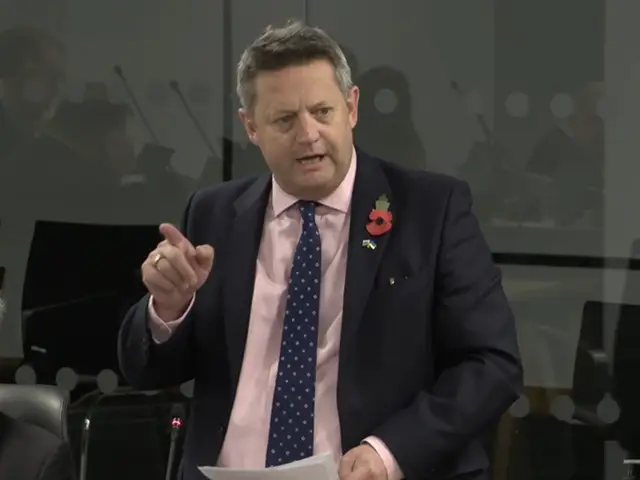Support quality, independent, local journalism…that matters
From just £1 a month you can help fund our work – and use our website without adverts. Become a member today

A former minister has accused the Welsh Government of “piling up laws” that are “never delivered”, painting a picture of a pattern of incompetence over the past decade.
Labour’s Alun Davies criticised a seven-year delay in introducing an environment bill to plug post-Brexit gaps which left Wales with some of the weakest protections in western Europe, according to environment charities.
Mr Davies, who is first on Labour’s list for the new Blaenau Gwent Caerffili Rhymni seat at next year’s election, said: “We’ve got to do more than pass declaratory legislation… [which] doesn’t have any bite… All too often the vanity of politicians takes over and we believe we can change things quite fundamental and, usually, outside our control simply by passing laws.”
He added: “I remember when this was important and an emergency back in 2018.”
He accused Huw Irranca-Davies, the Deputy First Minister, of being able to offer “no credible explanation” of why it has taken seven years to bring forward the environment bill.
Mr Davies stressed the delay was not a one-off, questioning why it took ministers about a decade to implement public health and renting laws too.
‘Real failures’
Calling for a parliamentary inquiry, he asked: “Why is it we’re asked to vote for this legislation, time and time again, but the government isn’t able to deliver?”
He warned: “There are real failures of parliamentary and governmental processes here.”
The backbencher, who has twice been sacked from government, added: “We are creating increasingly bureaucratic and cumbersome new structures, targets, which probably won’t be met and, in fact, if you read the bill, won’t even be set until the end of the next Senedd.”
He made the comments as the environment bill, which would establish a watchdog and set a framework for biodiversity targets, passed the first stage in the Senedd. Similar watchdogs were set up in Scotland, Northern Ireland and England in 2021.
Mr Davies told the Senedd: “It’s increasingly worrying to me that what we’re doing is piling up laws… which are never delivered, never implemented and which create burdensome and cumbersome demands on public bodies which they themselves are unable to deliver.”
‘National shame’
The Conservatives’ Janet Finch-Saunders was similarly scathing, describing delays as a “point of national shame” and a “serious political failure”. She suggested the Welsh Government will go down in history for kicking the can down the road.

She warned the bill pushes key decisions, such as actually setting targets, beyond the 2026 Senedd election when cross-party consensus on the issue could collapse.
Labour’s Mike Hedges, who chairs the Senedd’s legislation committee, concluded the bill “appears to have been deprioritised by the Welsh Government”.
He described the biodiversity target-setting framework as “ill-conceived”.
Delyth Jewell, Plaid Cymru’s shadow climate secretary, questioned why the Welsh watchdog was set to receive £300,000 less than its Scottish counterpart despite a wider remit.

And climate committee chair Llŷr Gruffydd warned last-minute government concessions “undermined” scrutiny as he called for the new watchdog to be “genuinely independent”.
‘Half-arsed’
During the debate on Tuesday November 11, Huw Irranca-Davies agreed to accelerate the timeline for setting targets from three years to two and bolster the body’s independence.
The Deputy First Minister and climate secretary also pledged to introduce a framework for short- and long-term targets, halve the time to report on missed targets to six months, and ensure the watchdog’s enforcement powers are active within two years.

Turning to his colleague’s criticism, he joked: “I very much welcome all of the comments that members have made today and the spirit in which they were made – you too, Alun.”
Mr Irranca-Davies then rejected the charge that the legislation was weak, insisting the targets would not be “half-arsed” and telling Mr Davies: “I do think you’re unduly pessimistic on this – this is more than declaratory legislation. This has got the benefit, because it has taken a bit longer, of being exceptionally, exceptionally well-worked, well-crafted.”
Senedd Members voted 50-1 in favour of the general principles of the bill, which now moves to amendment stages, with only Reform UK’s Laura Anne Jones, who represents South Wales East, voting against.
Support quality, independent, local journalism…that matters
From just £1 a month you can help fund our work – and use our website without adverts.
Become a member today
